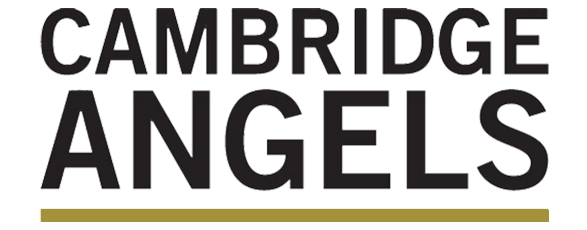Recently, Peter Cowley, the former Chair of Cambridge Angels, learned that he was entering the final stages of his battle with cancer. Peter, who has been a huge advocate of openness and transparency with his investing, his battles with addiction, loss and now this disease, wanted to have a final conversation with his fellow Cambridge Angel, Simon Blakey.
Peter, thank you for wanting to do this interview given you recent prognosis. Could you give a bit of your background to those who don’t know you?
Of course. I originally did a degree in software and engineering and worked in the software industry. I had always been exposed to the entrepreneurial lifestyle through my parents and I launched my first business in Bavaria in 1981; I have basically been unemployable since then! Over time I have set up a dozen businesses, with varying degrees of success, but the longest-running one is now 41 years old.
I was the financial cofounder of EPT Computing, where we achieved a 17x return in 3 years. After this success I was invited to join Cambridge Angels in 2009.
What has your experience been like with Cambridge Angels?
In short, life changing because there is such a vast amount of experience in the group and the senior people very much taught the then juniors, such as myself. I quickly worked out how to shadow the more experienced angels, such as Paul Anson, on deals, as well as working out which members I wanted to do deals with. Members such as Rajat Malhotra and Robert Sansom (amongst many others) have since become very close friends.
What have been the key drivers for your angel investing?
It has always been about the people…both my co-investors and the people I have invested in. As an angel there is a constant opportunity to learn, absorb fresh insights, and stay energised. Like entrepreneurship itself, you must enjoy the journey, not just the destination. Financial returns were never my main goal; there are far less stressful and less risky ways to make money!
And what have you got wrong or would have done differently?
I think it is worthwhile being aware that Angel investing is a drug…you can get addicted to it and I admit that, at some points I have spent (although a better term may be invested) way too much time (and probably money) on it to the detriment to loved ones.
With hindsight though what I couldn’t have sped up is the learning process; It is easy to put money into a business but the learning cycles are long and you need experience of failures in order to have an understanding of how to be a true value-add investor.
Given my technical background I have always been drawn to understanding core technology and routes to market. I was also prepared to embrace hardware but have realised that high-value hardware is a bit of a no-no for angel investors given the amount of funding that you often require to bring a product to market.
What have you learnt about both exit and failures?
I have served on 40 boards and attended over 1,300 board meetings. Around 85% of my failures have been due to companies struggling to find product-market fit before the investors give up. Down rounds are ok. Likewise, only one of my 20+ exits has been based on an EBITDA multiple; acquisitions mostly happen for strategic reason beyond simple financial metrics. Also, exits take time to prepare for…they don’t just happen.
As an investor you also need to know when to exit yourself. On boards my strength has been at the initial stages until the company has reached 30-40 people - then it is time for others to take over. Likewise, my returns have been massively enhanced by taking secondary sales when offered, allowing me to recycle the cash into other early-stage ventures. I am around 2.5x up cash on cash with a portfolio of unrealised investments but it took me 10.5 years to get to a cash-flow breakeven position. Interestingly, even with these stats, my median Enterprise Value on exit has only been $25-30M i.e. the exits don’t need to be huge to make a return if you get in at the right price.
What are your views on the size of an early-stage portfolio?
To be frank, I believe a portfolio should have at least 25 investments to balance the high-risk nature of early stage ventures . For a new starter this means that you need to do 5 investments per year over 5 years but you also need to be prepared to follow on; on average I have invested 2.26 times into each business I’ve backed. If you think that a £25k investment is the minimum you should invest to get a meaningful exit potential, the overall commitment over a few rounds could exceed £500k.
Finally, what has driven you to be so open when angel investing?
I wanted to be entrepreneurial and build a legacy to help others navigate this, often challenging, space. This drive became even stronger in 2022 with the death of my son Alan. With guidance from people like David Cleevely I decided to share my insights through books (“the Invested Investor”, “Public Success, Private Grief”, “Founder to Founder”) and podcasts (https://www.investedinvestor.com). I have since sold 4,500 books and the podcast has been listened to over 45,000 people to date.
I stopped investing into new businesses in 2020 (my 65th birthday year) and stopped investing completely in 2021 with my stage 4 cancer diagnosis. However, I am so happy that the work I have done has, and can, help educate the next generation of both investors and entrepreneurs.


